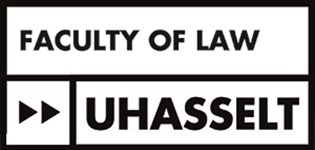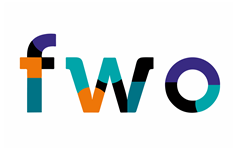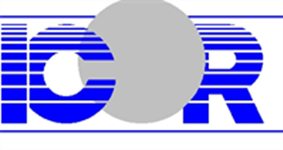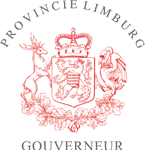State Neutrality and Religious Diversity in the Public Sphere and Public Education in Europe
View the content of this page




On 22 March 2022, Hasselt University will host the regional conference State Neutrality and Religious Diversity in the Public Sphere and Public Education in Europe.
Speakers: Jenny Berglund, Malcolm Evans, Myriam Hunter-Henin, Merilin Kiviorg, Angelika Nussberger and Cathérine Van de Graaf, Roland Pierik, Julie Ringelheim, Stijn Smet, Jeroen Temperman, and Ilias Trispiotis.
Discussants and panelists: Jan De Groof, Effie Fokas, Juliane Kokott, Françoise Tulkens, Wim van de Donk, Ben Vermeulen, and Kurt Willems.
The conference is co-organized by the Faculty of Law of Hasselt University and the Interuniversity Centre for Education Law (ICOR), with the financial support of: Research Foundation – Flanders (FWO), Hasselt University, Interuniversity Centre for Education Law (ICOR), Constitutional Law Unit of the Centre for Government and Law (CORe), and the Governor of the Province Limburg.
To foster dialogue between senior and junior researchers working on freedom of religion and education law in Europe, the conference conveners invite doctoral students to present their doctoral research at the conference, in the form of a poster. The call for posters can be found in the sidebar (deadline: 15 February 2022).
The programme, registration and conference venue can be viewed below or accessed through the sidebar.
Conference abstract
Religious diversity is a sociological reality to which European states must respond. One prominent response has been insistence on state neutrality as a central principle of constitutional law. In most European democracies, the neutrality principle structures the relationship between state and religion. Yet, the relationship between state and religion is understood differently in different countries. Whereas some (eg France) enforce a robust separation between religion and state, others maintain a closer relationship between both (eg Norway, the United Kingdom). Most European countries are located somewhere between both ends of the spectrum (eg Germany, Greece, Estonia, Sweden, the Netherlands, Belgium).
Different understandings of the relationship between state and religion coincide with varying interpretations of the neutrality principle. Whereas some countries rely on an exclusive understanding of neutrality (eg France), others favour a more inclusive understanding (eg Germany). In other countries, still, it is not clear what neutrality means exactly (eg Belgium). Different interpretations of state neutrality in turn interact with sociological realities, in which (non-)religious persons engage with, adapt to or challenge the requirements of state neutrality.
Key sites of contestation remain the public sphere, in general, and public education, in particular. The interpretation of state neutrality has an immediate bearing on challenging questions such as: can/should religion be taught in public schools, can pupils wear religious dress, can the state allow religious persons to refuse vaccination, how should the state position itself towards non-believers, should ritual animal slaughter be banned, etc? These and other questions about the relationship between state neutrality and religious diversity continue to provoke political and legal debate, as contemporary controversies in a range of European countries show.
Against the above backdrop, this regional conference aims to further deepen our knowledge in relation to two research questions: what does it mean for European states to be neutral; and how do/should European states respond to religious diversity in the public sphere and public education?
It is imperative to analyse these questions from a multidisciplinary perspective so as to comprehend the multi-faceted nature of the relationship between state neutrality and religious diversity. From the perspective of at least three disciplines – law, political theory and sociology – neutrality shapes how states engage with religious diversity and vice versa. At the same time, state neutrality also needs to be studied from a comparative perspective, given that understandings of the relationship between state neutrality and religious diversity in the public sphere and public education differ across Europe.
To achieve its objectives, this conference brings together leading scholars from a variety of European countries and a range of disciplines (primarily law and sociology) to study the relationship between state neutrality, on the one hand, and religious diversity in the public sphere and public education, on the other.
Programme
Time | Description |
|---|---|
8:45-9:00 | Registration and coffee |
9:00-9:05 | Welcome by Bernard Vanheusden, Rector of Hasselt University |
9:05-9:15 | Introduction by Stijn Smet, Hasselt University, and Jan De Groof, European Association of Education Law and Policy and College of Europe |
9:15-10:00 | Keynote address: State Neutrality and Religion in Europe: What's the prospect? – Sir Malcolm Evans, University of Bristol |
10:00-11:15 | Panel 1: Theoretical and comparative perspectives on state neutrality and religious diversity in Europe
|
11:15-11:45 | Coffee break |
11:45-13:00 | Panel 2: State neutrality and religious diversity in public education
|
13:00-14:15 | Lunch and poster presentations |
14:15-15:30 | Panel 3: State neutrality and religious diversity in the public sphere
|
15:30-16:00 | Coffee break |
16:00-17:00 | Closing panel: The relationship between state neutrality and religious diversity in Europe
|
17:00-17:15 | Concluding remarks: Avenues for future research and conference output – Jan De Groof and Stijn Smet |

Call for posters
To foster dialogue between senior and junior researchers working on freedom of religion and education law in Europe, the conference conveners invite doctoral students to present their doctoral research at the conference, in the form of a poster. All selected posters will be on display throughout the conference day. Doctoral students will also receive the opportunity to present their poster during the lunch break.
The conference conveners welcome proposals for conference posters within the broader domains of freedom of religion and education law, although preference may be given to proposals that are immediately related to the conference theme of state neutrality.
To submit your proposal, please send us by 15 February 2022:
- A conference poster or an abstract of max. 250 words in which you describe your doctoral research (with the poster to be made upon acceptance)
- A brief explanation of max. 250 words on why your doctoral research merits inclusion in the programme
Please submit your proposal in one pdf document. This should also include the following information: full name, university, theme/title of doctoral research, stage of doctoral research (year 1, 2, 3, etc).
Deadline for poster proposals: 15 February 2022
Selected doctoral students will be notified by 22 February 2022.
Submissions can be sent directly to stijn.smet@uhasselt.be. Please use ‘Poster for Neutrality Conference’ as the email subject.
Registration
This conference can be attended either in person or online.
The registration fee for online attendance is 20,00 euros. Attendance in person is subject to a registration fee of 50,00 euros. The registration fee covers the costs for the conference package, coffee breaks and lunch.
Conference venue
Hasselt University, Campus Hasselt
Aula Louis Verhaegen
Martelarenlaan 42, 3500 Hasselt, Belgium
